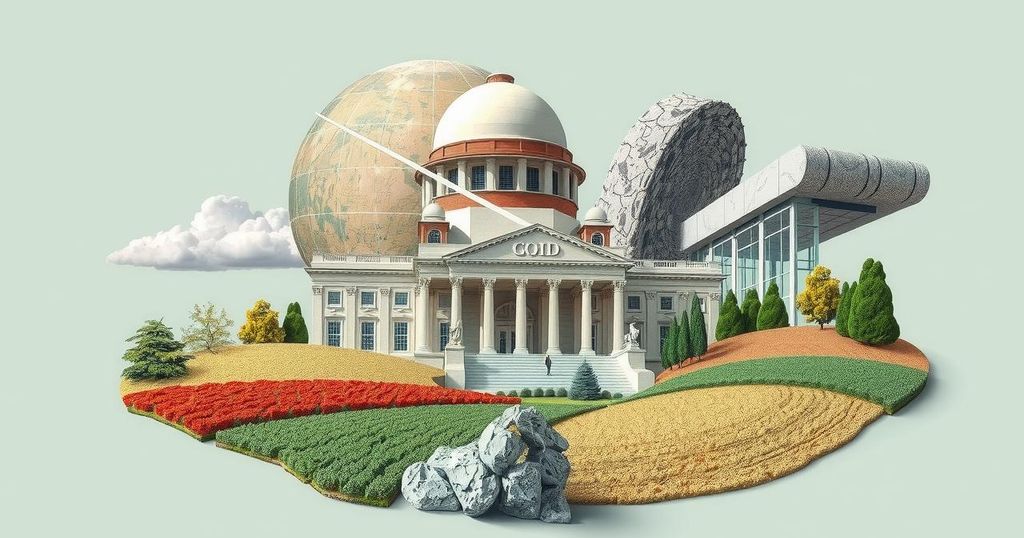President Trump has signed an executive order that suspends aid to South Africa due to concerns over its land reform legislation and accusations against Israel of genocide. The move follows Trump’s claims that South Africa is unlawfully seizing land. President Ramaphosa has defended the land policy intended to rectify apartheid’s injustices, while the U.S. plans to assist affected farmers.
United States President Donald Trump has enacted an executive order that freezes financial aid to South Africa, citing concerns over the country’s new land laws and its accusations against Israel concerning genocide. This order follows Trump’s earlier threats to eliminate funding, claiming that South Africa is unlawfully confiscating land and mistreating certain groups. The dispute has escalated, with significant commentary from Trump’s adviser, Elon Musk, who criticized South Africa’s land ownership regulations as racially discriminatory.
President Cyril Ramaphosa has not publicly responded to Trump’s latest actions, but he has previously defended South Africa’s land reform policies, asserting that no land has been confiscated and that the aim is to provide equitable access to land. The law, passed last month, permits land expropriation without compensation under specific conditions, particularly to remedy historical injustices faced during apartheid, which has left most farmland in the hands of white citizens.
The new policy allows expropriation only when it is deemed just, equitable, and in public interest, thus, incorporating criteria for land that is unused or poses a risk to the community. The executive order from President Trump emphasizes the United States’ inability to support perceived human rights violations by the South African government while vowing not to provide aid as long as these practices persist. The U.S. aims to develop a plan for the resettlement of South African farmers, particularly those of Afrikaner descent, as refugees.
The order also notes South Africa’s stance on Israel, accusing it of genocide at the International Court of Justice and strengthening ties with Iran for potential military cooperation. Trump expressed on his platform, Truth Social, that he intends to halt funding until a thorough investigation of South Africa’s conduct is completed, describing their actions as “horrible things” and suggesting they are confiscating land. Ramaphosa sought to ease tensions by communicating with Musk, reaffirming South Africa’s commitment to constitutional values of justice and equality.
The executive order signed by President Trump is part of a broader diplomatic conflict between the United States and South Africa, arising from South Africa’s land reform policies. The country’s approach to addressing land ownership issues stems from the historical legacy of apartheid, which has left significant racial disparities in land distribution. South Africa’s current law allows confiscation without compensation, aimed at rectifying these injustices, although it has garnered international scrutiny and accusations of possible rights violations.
In summary, President Trump’s executive order freezing aid to South Africa is a direct response to concerns regarding the nation’s land reform policies and its international stance towards Israel. This action highlights the tensions surrounding land ownership in South Africa, which continues to be a contentious issue decades after apartheid officially ended. As negotiations and dialogue occur, the U.S. has signaled its intention to offer resettlement options for affected South African farmers.
Original Source: www.bbc.com






